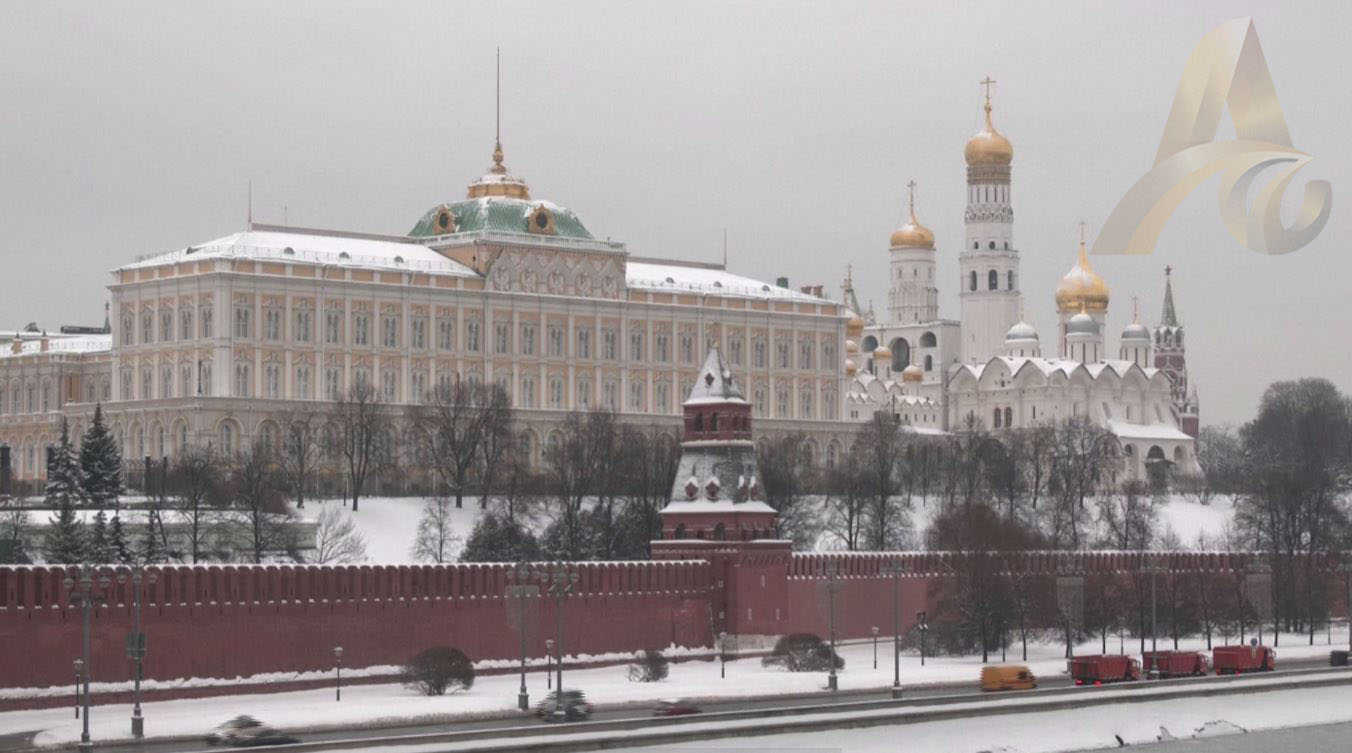INTERNATIONAL: In March and April 2021, Russia massed about 100,000 soldiers and military equipment near its border with Ukraine, representing the highest force mobilization since the country's annexation of Crimea in 2014. This precipitated an international crisis and generated concerns over a potential invasion.
On Monday, the Kremlin has accused the United States and its allies of escalating East-West tensions by announcing plans to boost NATO forces in Eastern Europe and evacuate the families of diplomats from the U.S. embassy in Ukraine.
Currently, Russia and Ukraine are engaged in the Russo-Ukrainian War which started in 2014 following the Russian annexation of Crimea from Ukraine and saw an escalation in early 2021.
After the Soviet Union's dissolution in 1991, the successor states' bilateral relations have undergone periods of ties, tensions, and outright hostility. In the early 1990s, Ukraine's policy was dominated by aspirations to ensure its sovereignty and independence, followed by a foreign policy that balanced cooperation with the EU, Russia, and other powerful polities.
Relations between the two countries have been hostile since the Revolution of Dignity, which toppled Ukraine's elected president Viktor Yanukovych and his supporters, because he refused to sign a political association and free trade agreement with the European Union that enjoyed majority support in Ukraine's parliament. Ukraine's post-revolutionary government wished to commit the country to a future within the EU and NATO, rather than continue to play the delicate diplomatic game of balancing its own economic and security interests with those of Russia, the EU, and NATO members.
In 2004 the Czech Republic, Estonia, Latvia, Lithuania, Poland, and Slovakia had joined the EU, followed by Bulgaria and Romania in 2007,
The Russian government feared that Ukraine's membership of the EU and NATO would complete a western wall of allied countries by restricting Russia's access to the Black Sea. With South Korea and Japan being allied to the US, the Russian government was concerned that Russia was being ring-fenced by potentially hostile powers.
In the wake of the Revolution of Dignity, Russia backed separatist militias in the Donetsk People's Republic and the Luhansk People's Republic in a war in Ukraine's economically important Donbas region, on its eastern border with Russia. This region has a Russian ethnic majority.
By early 2020 the War in Donbas had killed more than 13,000 people, and brought some Western sanctions on Russia.Throughout 2021, Russian military buildup on the border of Ukraine has escalated tensions between the two countries and strained bilateral relations, with the United States sending a strong message that invasion would be met with dire consequences for Russia's economy.These events continue in 2022.
The Russian foreign ministry has announced several demands in December 2021, including a prohibition on Ukraine joining the North Atlantic Treaty Organization (NATO) and a decrease of NATO soldiers and military equipment in Eastern Europe in exchange for the withdrawal of Russian armed forces.
The United States and other NATO members have rejected these requests, and have warned Russia of increased economic sanctions should it invade Ukraine. Bilateral U.S.-Russia diplomatic talks were held in January 2022, but did not defuse the crisis.
The crisis has been described as one of the most intense since the Cold War.
Kremlin spokesman, Dmitry Peskov has admitted; “The possibility of conflict is present and now it is very high. It's now higher than before."
Peskov has said, the tensions are being escalated via information activities and concrete actions taken by the United States of America and NATO. The information of activities he said, is about the information hysteria that everyone are witnessing. It is generously laced with a huge amount of false information, just the lies that are published.
The Kremlin spokesman has added there were statements from the North Atlantic Alliance about more troops, pulling forces and assets onto the eastern flank. All of it is causing tensions to rise. He has pointed out - it is not because of what Russia, are doing. It's all happening because of what NATO, the United States are doing and the information they are spreading.
Peskov has made clear, Russia is a reliable guarantor of European energy security in the most difficult moments of relations. And in the most difficult moments of East-West stand off , Russia flawlessly fulfilled its contractual obligations.
Every single piece of weaponry, whether defencive or offencive, is once again inspiring hotheads in Kyiv to launch this operation. Russia would like to see NATO countries in their many statements each time urging Kyiv not even to think about the possibility of a forceful settlement in Ukraine.
Pesko has mentioned Ukraine has deployed a large number of troops near the borders of breakaway regions controlled by pro-Russian separatists which he said indicated that Kyiv was preparing to attack them. But Ukraine has repeatedly denied this.
Peskov has said information coming from the West was filled with "hysteria" and "laced with lies".
NATO has said earlier it was putting forces on standby and reinforcing eastern Europe with more ships and fighter jets in response to Russia's military build-up at Ukraine's borders.
The move has added to a flurry of signals that the West is bracing for an aggressive Russian move against Ukraine, though Moscow denies any plan to invade.
PHOTO: KREMLIN SPOKESMAN COMMENTING ON RUSSIA-NATO AND RUSSIA-UKRAINE TENSIONS, GAS SUPPLY






















